“Trust is not a default. It is work and it is intentional. It is structured and it is disciplined.” Rex Miller , Author & Culture Change Expert
“We need to build trust in your team to get more done.” Perhaps you’ve heard your Leader say this at some point. It’s easy to say, but hard to do. And you’re not alone.
According to PwC’s Annual Global CEO survey, in 2017, across industries, levels of distrust at work have climbed to 55%. And CEOs aren’t the only ones feeling the tension: one in three employees surveyed don’t trust their manager.
How and Why Distrust Shows Up
If CEOs, managers, or Leaders of a company skate the edges of ethical behavior, hide information, take credit for others’ hard work, or flat out lie, the problem is obvious. Bullying, secretiveness, and pitting colleagues against one another can be a bit more passive and hard to identify. Unintended signals and communication breakdowns can be more subtle yet. All of these behaviors can deteriorate whatever level of trust you may have in your team or organization.
Managers often lack self-awareness, the organizational culture is risk-averse, or there is an overarching bottom-line mentality. Whatever the cause for distrust may be, intentionally building a culture of trust and communication at work is a worthy endeavor.
Why Build Trust at Work?
Employee experience is on the rise of recognition as a factor to attract and retain the best employees. To create a positive work environment, which we know leads to dramatic benefits for employers, leaders have to build a solid base of trust.
Employees in high-trust organizations are more productive, have more energy at work, collaborate better with their colleagues, and stay with their employers longer than people working at low-trust companies. Paul Zak has even derived a mathematical relationship between trust and economic performance.
High-trust organizations systematically create a valuable employee experience first. Employees are then motivated to create and deliver more value to their customers consistently and, in turn, more value to key stakeholders. As Stephen M. R. Covey puts simply in The Speed of Trust, “When you increase the level trust at work, cost goes down, and the speed of work goes up.”
Social science agrees- a 2013 research study that shows that a feeling of trust at work leads to higher organizational self-esteem, which leads to higher productivity. Further, a 2007 study demonstrated that trust at work begets higher productivity at work.
Plus, the neuroscience of trust tells us that trust increases oxytocin levels, which has been shown to improve empathy and prosocial behavior at work. And the relationship is reciprocal and upward-spiraling: oxytocin also increases trust. Trust yields more trust.
The Recipe For Building Trust
Google tells us the best teams feel psychologically safe, which is a foundation of trust-building, but how do we build that safety?
Our view at Ziksana Consulting is to identify Play as the human element and Productivity as the execution element. Both are critical to building trusting relationships in a team and organization.
Play includes aspects like authentic connection and integrity. Productivity includes aspects like credibility and reliability. When all four of these elements exist in organizational culture, there is a high level of trust at work.
And you’ll be able to tell: high-trust organizations have employees and teammates who become visible advocates for your business and its people.
1. Authentic Connection
- Co-create a safe environment where people can support and challenge one another freely
- Celebrate your and others’ successes (even the small ones) to show you care
- Share or create common experiences that give people common emotions to connect with others to develop empathy.
- In Practice: At Ziksana, we have a Weekly Learning Hour where our team members sign up to share our values and history. Sometimes we venture together out into San Diego to learn something new together – See our blog on Wonder Spaces. We also love Escape Rooms.
2. Integrity
- Walk the Talk: behave in close alignment with your values (make sure you know them first)
- Make decisions for both short and long term benefits
- Eliminate any hidden agendas behind behaviors or decisions
- Do the ‘right thing’ when nobody’s watching
- In Practice: Pause to wipe down the counters in the bathroom. Trust is built in the small, in-between moments. Be glad to cultivate culture in every moment by demonstrating care and ownership of your workspace.
3. Credibility
- Meet your deadlines and hit your goals (make sure you have clear expectations of success first)
- Be ready and willing to learn if you don’t perform
- Be willing to say “I don’t know” and ask for help quickly
- Reflect on criticisms and objections to make your final decision stronger
- In Practice: In a brainstorming meeting, take an idea you don’t agree with and talk through why you disagree with it with your group. Teams that disagree and know where that disagreement stems from can build a culture of trust faster.
4. Reliability
- Produce valuable, quality work on time
- Follow-through: only make promises you can keep to be dependable (Know how to move projects forward despite disruptions and surprises)
- Be conscientious: careful, thoughtful, and patient
- Take action when values are violated
- In Practice: If your value is “Always think of clients first,” and the behavior you saw was short-changing the clients in a team meeting, then challenge the violator by asking, “How does that decision exemplify “always think of clients first”?
Building trust is a dynamic process of moving between these four attributes of productivity and play. People earn trust not just with Productivity – completing tasks- but also with Play – connecting on a human level. Leaders of teams or organizations need to be aware of when they focus on one side more than the other and gauge the right time to balance one side with fuel from the other.
Here’s one thing you can do today to build trust with your teams at work:
Have a specific conversation about one element of trust that is working and lacking with someone on your team. Don’t use the word ‘trust’ in that conversation.
Dig deeper to find out how much trust you have in your workplace relationships, communication strategies, and employee engagement: Contact us today for a Quick Trust Diagnostic!
Learn Applied Improvisation techniques to break the ice at your next meeting or event!


















